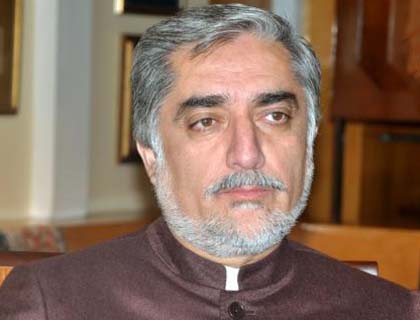KABUL - Presiding over the Council of Ministers (CM) meeting on Monday, the chief executive officer of the national unity government Abdullah Abdullah announced that he was looking to give more authority to ministers, which will enable them to sign contracts and approve appointments.
Abdullah noted that he has already raised the issue with President Ashraf Ghani and pointed out that there is the need for a presidential decree in order to implement the program.
Despite 13 cabinet meetings already having been held under the chairmanship of CEO Abdullah Abdullah since the formation of the National Unity Government (NUG), most meetings have been attended by acting ministers.
During last week's cabinet meeting Minister of Petroleum and Mines Dawood Shah Saba raised concerns over the limited powers given to minister and called on the CEO to assess the situation.
Following the formation of the NUG, Ghani issued a decree to allow former deputy minister to act as ministers. This also included the appointment of 34 acting governors for provinces.
However, this decree prevents acting ministers from signing contracts and appointments. Eight acting ministers were however recently approved by parliament.
On this issue, Abdullah said that the eight ministers now have full authority in their positions. He said: "I have already discussed the topic with the President of Islamic Republic of Afghanistan Mohammad Ashraf Ghani. A presidential decree will be issued if needed. All institutions in Afghanistan particularly the Independent Administrative Affairs and Civil Service Commission will have complete authority and will be allowed to undertake appointments, selection and deal with financial affairs," Abdullah said.
Meanwhile a number of analysts have said that the continued situation of acting ministers, and acting governors, with limited authority has led to a state of uncertainty in the country.
"The prevailing situation indicates the extent of corruption in the country and the current situation has led to a state of anarchy and lawlessness. In most of the government ministries, services are provided to the people in exchange for money," head of the Independent Joint Anti-Corruption Monitoring and Evaluation Committee MEC Mohammad Yasin Osmani said on Monday.
In addition, Abdullah has confirmed that the job of acting governors and acting ministers has exposed problems in the country. But analysts have warned that the continuation of the issue could topple the government.
"Initially, the government made a number of commitments to the people, but it has failed to form its cabinet within six months. I believe that many of the promises made by NUG leaders weren't more than slogans," Ghazni MP Mohammad Ali Ekhlaqi said.
"Provinces and the ministries are administered by the acting chiefs, if the same situation continues, we will not recognize this government as legitimate," Kabul MP Abdul Qadir Zazai said.
Meanwhile economic commentators say the recession has been particularly bad over the past four month. Analysts also say that the controversy around the presidential elections has raised a number of concerns and shown that government clearly needs to focus on national issues. (Tolonews)

